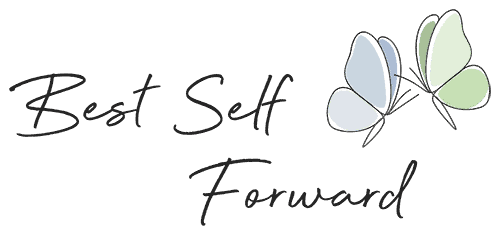Even the best couples can drift over time. When the honeymoon period ends, couples are often left wondering where the spark went and why they’re moving apart from one another.
That’s because most of us didn’t learn the skills necessary to maintain and nurture healthy and successful relationships. Think about almost every romantic comedy ever. The focus is on getting to the altar or having that big pronouncement of love. Rarely does anything cover what comes next.
As our relationships evolve and progress, we reveal more about ourselves to our partners. And this is when our lack of relational skills shows up. Without equipping ourselves with the necessary skills required to communicate effectively and navigate our differences, we can begin to drift apart, resent one another, fight more, or even lose the relationship.
Many couples wait until the relationship starts to break down before seeking couples counselling. They can’t see the point of getting counselling when everything is going great. But that’s only one way to think about couples counselling.
Proactive couples counselling is another style of therapy that can benefit some relationships even more than traditional counselling.
What is Proactive Couples Counselling?
We tend to think of counselling as a way to repair problems and bring couples back from the brink of separation. It can definitely fulfill that role.
But with proactive couples counselling, the idea is to get support while everything is still great so that you’re ready and equipped for change.
We all know avoiding unhealthy habits like smoking, excessive drinking, or binge eating is more effective than undergoing treatment when you develop an illness.
Even with strong, long-term relationships, time has a way of making minor issues grow into large ones if they aren’t adequately addressed.
A Quick Litmus Test
A good litmus test to use is the “but” test. Think about a relationship quality that you consider healthy in your relationship and see if there’s a lingering “but” in your mind. In a strong relationship, the good will always far outweigh the bad. Still even the smallest “but” can grow over time and become an issue down the road.
Here are a few examples:
- We share tasks around the house, but I always have to wash the dishes.
- We often talk and laugh together, but it doesn’t feel spontaneous anymore.
- We are regularly intimate and enjoy each other, but it feels part of our routine.
In general, the above can still absolutely be considered a healthy relationship. “Buts” pop up regularly in long-term relationships.
The issue is time. When you’ve been with your partner for a long period, the minor concerns can grow and eventually take on their own life. Think of a small pebble in your shoe. It won’t matter much if you’re walking to the end of the yard to collect your mail. It’s a different thing altogether if you’re running an ultramarathon. Now, imagine you’re trying to run with multiple pebbles. How quickly will your pace drop off?
So, how does proactive couples counselling help?
You and Your Partner Are More Receptive to Support
In a traditional counselling setting, there is a significant problem that the couple is trying to overcome. Remember the pebbles we talked about earlier? Before the couple is able to deal with their major problem or issue, they first have to tend to all the little rocks that have gathered in their shoes over the years.
Often, one or both individuals will shut down in the sessions. They may see it as a last resort or believe that their relationship has already failed by the simple fact of having to seek support.
None of these situations are present in proactive couples counselling. Both parties are usually coming in happy and in love with one another. As a result, you are both more receptive to feedback from each other or the counsellor. Starting from this place allows the counsellor to help you learn healthy communication and ways to strengthen your bond.
It’s Easier to Accept Responsibility
Anger and discontentment can hurt our ability to accept responsibility, even if we know we were in the wrong in a specific situation.
In a relationship context with a substantial breach of trust or deep-rooted problems, individuals often find it difficult to accept responsibility for anything. Buried resentments or negative ways of thinking can simmer to the surface at any moment.
For example, a minor lapse, such as not inviting your partner to a social situation (when they believe you should have), can have significant ramifications in a relationship with serious issues. Not asking them could reaffirm negative feelings they have about themselves and make them feel much less secure in the relationship.
In a healthy context, the same situation is much more surface-level. Yes, your partner may have been hurt that they weren’t invited. Still, you are in a better space to accept responsibility for your decision. You can admit that, yes, you should have asked them and apologize. Or you can give your side of the story – such as needing time alone with your friends, and your partner is able to hear and understand your point of view.
The healthier starting point means both can take responsibility more quickly and resolve issues without escalation.
It’s Easier to Predict Future Roadblocks
Perspective is essential in life. Just as a sculptor takes a step back to look for imperfections, it’s also good for couples to remove themselves from their day-to-day and spot issues they’d otherwise miss.
Having a counsellor present can help you achieve this in a way that’s impossible without one. As a third party, they can identify and bring up issues that both of you took for granted or simply didn’t notice.
You may give too much at the expense of your own needs. Or you could be too reliant on each other to the extent that you lose some of your individuality.
Every relationship has its speed bumps that can eventually become roadblocks. Identifying them while they’re still a blip on the radar can help you correct your course and remain confident in your future as a couple.
The Act of Going Speaks Volumes
In a healthy relationship, you want to support your partner. You may do this implicitly in many ways, but showing your support explicitly can be more difficult.
Going to proactive couples counselling – even if it takes place entirely online – shows that you are actively open to strengthening your bond with your partner.
That says a lot about you as an individual and your commitment to the relationship.
When both people show up willingly and openly, sessions are full of mutual love and support. You see that your partner has your back and will take active steps to strengthen your relationship.
This cuts to the heart of what proactive couples counselling is. It’s proactive. It’s admitting that our relationship is beautiful and that beauty is worth preserving. It’s not turning your back on minor issues until they morph into large ones.
Strengthen Your Bond at its Core
A climbing rope is an essential piece of sports equipment for adventurers. The entire rope is made of nylon – but two parts make up the rope. The pretty, coloured outside that everyone notices is a flat, smooth woven nylon. But the rope’s true strength comes from its core, a stretchy, braided nylon that is tightly woven together and able to withstand immense tension.
Proactive couples counselling doesn’t change what your relationship is made up of. Like with the climbing rope, it simply strengthens the bond you have at your core, providing extra confidence when times get rough.
Please reach out today if you’d like to learn more about proactive couples counselling. Together, we can strengthen your relationship at its core.
Maha Elias is a Registered Clinical Counsellor (RCC), Canadian Certified Counsellor (CCC), Comprehensive Family Mediator (FMC), and sexual health and trauma-informed couples therapist with a private counselling practice in Victoria, British Columbia.

